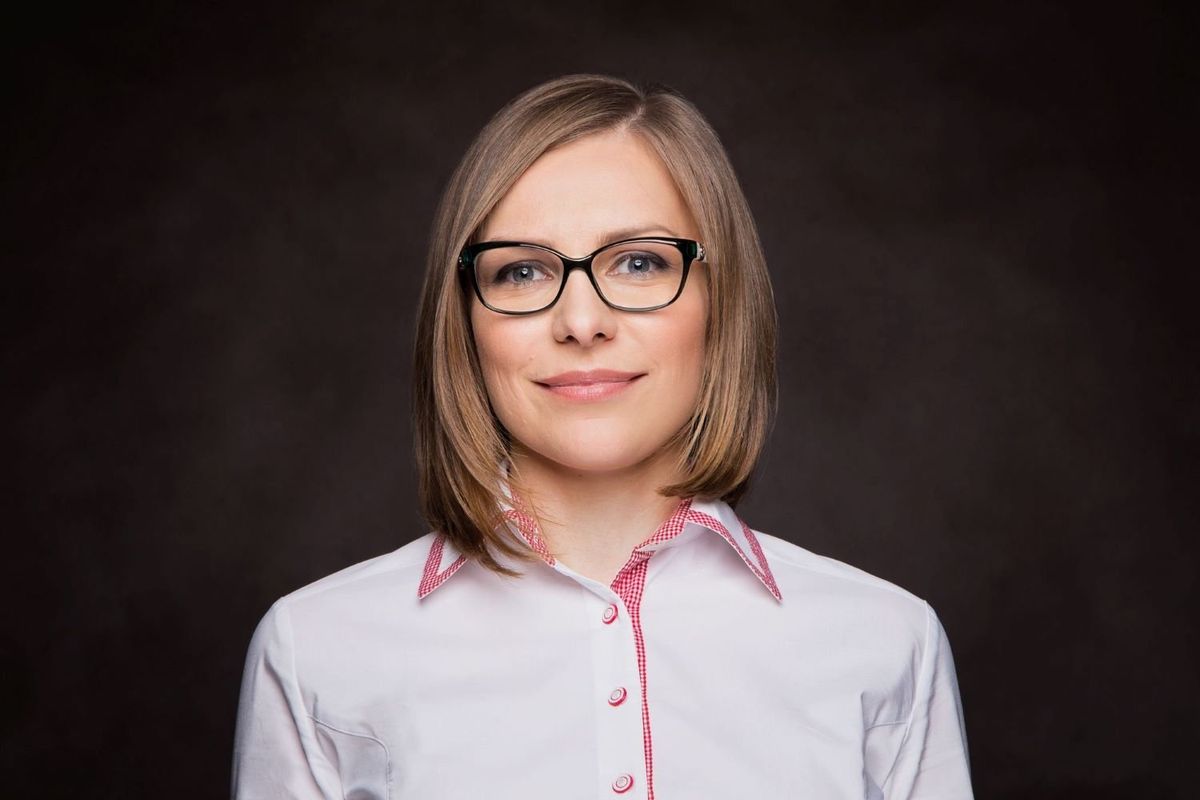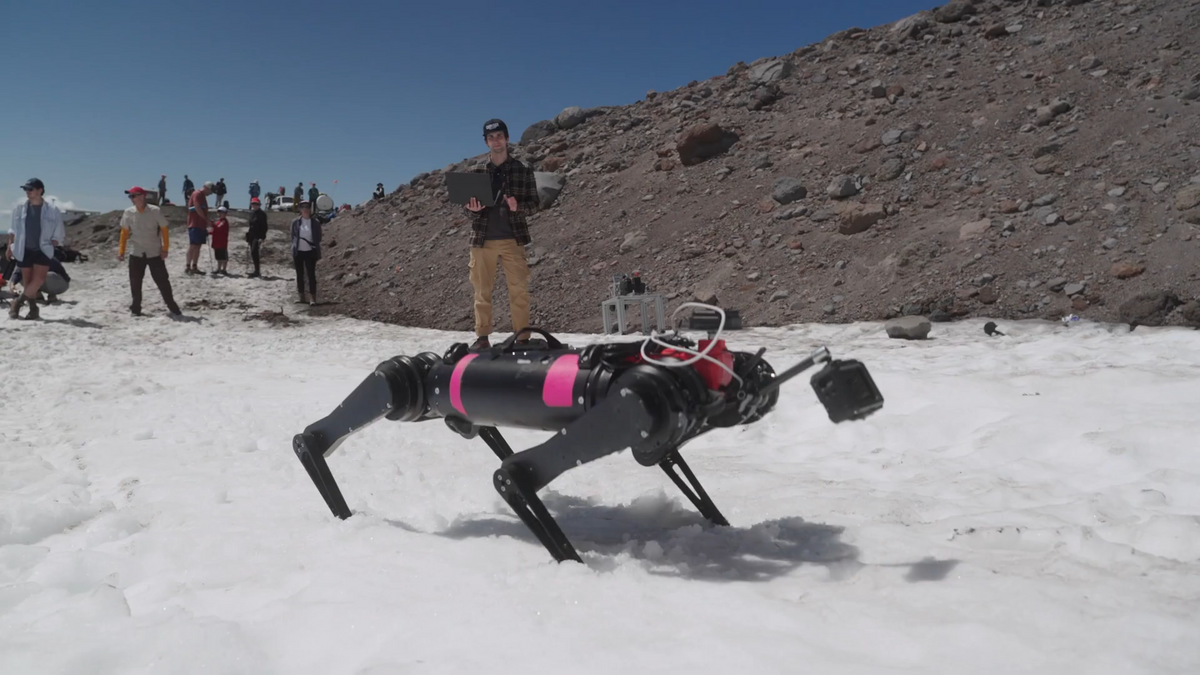The lack of an engineering mentor while growing up didn’t hinder Anna Zakrzewska from having a successful career in telecommunications. She is a senior principal engineer at Dell Technologies in Dublin. But Zakrzewska wonders how different her journey would have been if she’d had a mentor to guide her when she was younger.
“None of my family members or family friends were engineers,” she says. “I also didn’t have any mentors at school, and I often think about how my career would be different if I was exposed to STEM earlier in life.”
The IEEE senior member has made it her mission to introduce children to science, technology, engineering, and mathematics careers and to nurture their interest in STEM fields. She volunteers for organizations that do just that such as Technovation Girls, which focuses on getting more girls interested in STEM. The nonprofit holds an annual competition at which teams develop mobile apps that address real-world problems. Zakrzewska helps judge the entries.
She also provides guidance to university students and young professionals through outreach programs at Dell such as STEM Aspire.
For her work in STEM outreach and technical contributions to telecommunications research, Zakrzewska is the recipient of this year’s IEEE Theodore W. Hissey Outstanding Young Professional Award. The honor is sponsored by IEEE Young Professionals and the IEEE Photonics and Power & Energy societies.
Receiving the award, Zakrzewska says, motivates her to continue her volunteerism, mentoring, and technical career.
Mentoring the next generation of engineers
When Zakrzewska was growing up in Poland, she and her family often listened to the radio. Their radio was about the size of a microwave oven, she says, and she believed there were little people living inside whose job was to entertain and inform listeners.
Zakrzewska says when someone finally explained to her the engineering that makes radios work, it was an abstract concept.
About Anna Zakrzewska
EMPLOYER Dell Technologies in Dublin
TITLE Senior principal engineer
MEMBER GRADE Senior member
ALMA MATERS Technical University of Denmark, in Kongens Lyngby and the Wrocław University of Science and Technology, in Poland
“Since I couldn’t actually see how the device worked,” she says, “to me engineering was magic.”
Zakrzewska originally wanted to become a radio broadcaster, but she also liked the idea of becoming an engineer so she could create technology that people would consider magical like she did. Ultimately she chose to pursue engineering and figured she could write about technology in her spare time.
After graduating with a master’s degree in telecommunications and computer science in 2008 from the Wrocław University of Science and Technology, in Poland, Zakrzewska initially didn’t know what type of career to pursue.
“I enjoyed working on student research projects but felt that the academic world was not for me. I couldn’t see myself as a lecturer,” she says. “But I wasn’t sure if I wanted to be an industrial researcher either.”
She decided to give research a try and in 2009 became an intern at Nippon Telegraph and Telephone Corp., in Atsugi, Japan. She left after about a year to take a similar position at the European Commission’s Joint Research Centre in Ispra, Italy. It conducts telecommunications research and helps the European Union set policy.
Finding that she enjoyed the work, Zakrzewska enrolled in 2010 in a doctoral program in wireless communications at the Technical University of Denmark, in Kongens Lyngby.
While there, she had her first experience of being a mentor to undergraduate engineering students as a member of the university’s IEEE student branch.
“If a door to a certain opportunity is closed, don’t let that discourage you. Find a way to open the door, or [find] another way in.”
“The Ph.D.-level members of the branch started a mentoring program because we realized we could help younger students with their studies or give them advice about internships and career paths,” she says. “The branch also invited established professionals from a variety of electrical engineering fields to speak to students.”
Participating in the program made Zakrzewska realize that many preuniversity schools didn’t promote careers in STEM, she says, and that mentoring young people about such careers when they’re already university students is “too late.”
After earning her Ph.D. in 2013, she joined Nokia Bell Labs in Dublin as a research scientist working in wireless communications and self-organizing networks. She has been granted several patents, which have been commercialized.
She also started to volunteer for STEM outreach organizations and programs. In 2015 she began managing the Nokia Bell Labs booth at the BT Young Scientist & Technology Exhibition, an annual Irish science fair. She told youngsters who visited the booth about her job and answered their questions. They asked her questions such as “Have you ever broken anything in the lab?” and “What do you do if things don’t work—does your boss yell at you?”
“I answered their questions as truthfully as I could,” Zakrzewska says, laughing, “while still making them feel excited about working in STEM.”
She left Nokia Bell Labs in 2021 and joined Dell as a principal engineer at its Telecom Co-innovation Expert Centre. She helps develop technical standards for telecommunication technology, specifically for open radio access networks.
Increasing equity in the technical workforce
Zakrzewska became active in 2017 with the annual Grace Hopper Celebration, a gathering of women technologists. The event is organized by AnitaB.org, a nonprofit that is working to increase intersectional equity (fairness with respect to both race and gender) in the global technical workforce. Zakrzewska is a committee member and is on the panel of reviewers for the scholarship program.
In 2020 she began volunteering for I’m a Scientist, an enrichment program designed to connect students with scientists and engineers. The mentors and students engage in online chats on the program’s website, and mentees can ask their mentor questions about their job. Zakrzewska says she enjoys helping inspire the next generation by sharing her real-life experiences.
She also began active in 2020 for the annual Technovation Girls competition. Teams of up to five girls between the ages of 8 and 18 develop a technology that could address challenges in their local communities.There are three divisions: beginners, juniors, and seniors. In addition to developing a mobile app, the teams present a business plan and a pitch video.
“I am extremely impressed by these projects,” Zakrzewska says. “The students are able to identify the key problems, which often relate to their respective age group and may not be visible by adults, for example climate change anxiety or social media addiction. Many have ambitious plans to partner with the local authorities and seek sponsorship for their apps.
IEEE: A trustworthy resource and global community
Zakrzewska joined IEEE in 2010 while a Ph.D. student at the Technical University of Denmark. She signed up, she says, so she could publish a paper in one of IEEE’s conference proceedings. She maintains her membership partly because IEEE is a trustworthy source of information, and she refers to the organization’s journals nearly every day at work.
Another benefit of membership is IEEE’s global network, she says: “By being a member, I can reach out to any expert in any engineering-related field in the world. Everyone is an email away.”
“Solving these problems not only provides a motivation to learn new skills in coding or teamwork, but also empowers the students to lead the change in their local communities.”
As a participant in Dell’s mentoring programs, Zakrzewska visits preuniversity schools to explain to students how she became an engineer and what her job entails. She also provides career guidance to the company’s interns and young professionals as well.
“I challenge my mentees to step out of their comfort zone and, for example, search for job opportunities abroad,” she says. “I don’t believe in people limiting themselves.
“I strive to show them how their skills are widely applicable and that they can dream big in terms of where their career may lead them.”
Zakrzewska’s biggest piece of advice for her mentees, she says, is to create opportunities for themselves.
“If a door to a certain opportunity is closed, don’t let that discourage you,” she counsels. “Find a way to open the door or [find] another way in.”
She is set to receive the IEEE Theodore W. Hissey Outstanding Young Professional Award on 5 May at the 2023 IEEE Vision, Innovation, and Challenges Summit and Honors Ceremony, to be held at the Hilton Atlanta.
The views expressed in this interview are Anna Zakrzewska’s personal opinions and do not necessarily reflect the views of any organization mentioned.
This article appears in the June 2023 print issue as “A Young Engineer on the Power of Mentorship.”
- IEEE STEM Activity Kits Are In Demand at 150 U.S. Public Libraries ›
- Victoria Serrano Helps Panamanian Students Discover STEM Through Lego Robots ›
- Teen Creates App To Identify Nutrient Deficiencies ›
- The Maestro Behind Design-Software Behemoth Synopsys - IEEE Spectrum ›
- Arizona State University Professor’s Work to Stabilize the Grid Pays Off - IEEE Spectrum ›
- This Nobel Laureate Paved the Way for High-Intensity Lasers - IEEE Spectrum ›
- IEEE Celebrates Engineering Pioneers and Emerging Technologies - IEEE Spectrum ›
- U.N.’s ITU Secretary-General Receives IEEE President’s Award - IEEE Spectrum ›
- Radar Imaging Could Be the Key to Monitoring Climate Change - IEEE Spectrum ›
- From EE to VC: Eileen Tanghal's Journey - IEEE Spectrum ›
Joanna Goodrich is the associate editor of The Institute, covering the work and accomplishments of IEEE members and IEEE and technology-related events. She has a master's degree in health communications from Rutgers University, in New Brunswick, N.J.


